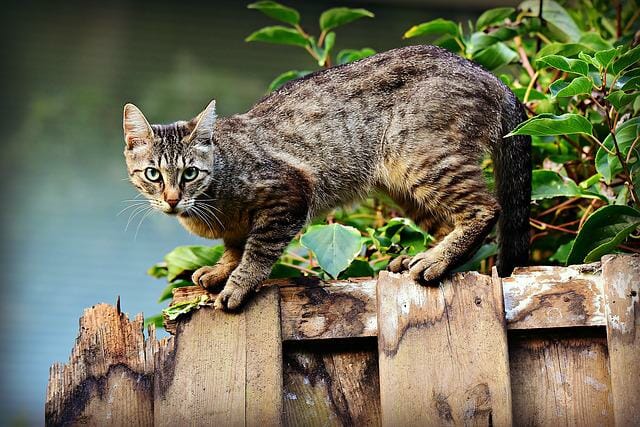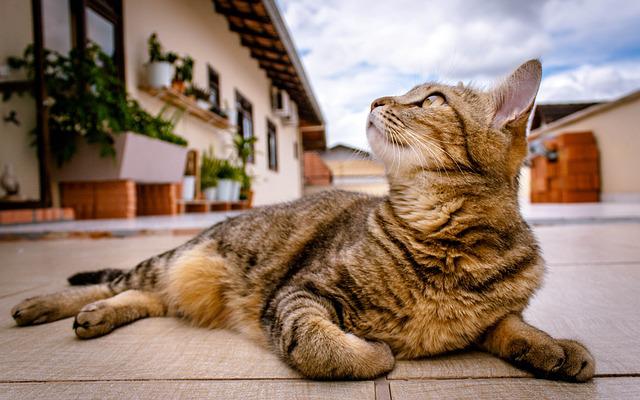Cat Indoor vs. Outdoor: Things to Consider in Deciding Whether to Keep Your Cat Outdoors or Indoors
Indoor cats are generally safer from predators, traffic, and other outdoor hazards. They are less likely to get lost or stolen or contract diseases or parasites. On the other hand, outdoor cats have more exercise and mental stimulation opportunities. They can express natural behaviors such as hunting and exploring, have fewer litter box issues, and may be less prone to obesity.
Ultimately, whether to keep your cat as an indoor or outdoor pet depends on your lifestyle, your cat’s personality and needs, and the level of risk you are willing to accept. Many people choose to compromise by providing their cats with outdoor access in a safe and controlled way, such as through a secure outdoor enclosure or supervised playtime.


Table of Contents
Advantages of Keeping a Cat Indoors Instead of Outdoors
Safety
Keeping an indoor cat can provide a significant advantage in terms of safety, as it helps protect your cat from various outdoor hazards. Outdoor cats are at risk of being attacked by predators such as coyotes, foxes, and birds of prey. Indoor cats are protected from these animals and are less likely to be injured or killed.
Outdoor cats are at risk of being hit by cars, which can cause serious injuries or even death. Indoor cats are not exposed to this risk and are protected from traffic accidents. Outdoor cats are at risk of being injured by other animals, such as dogs or other cats. They are at risk of being exposed to diseases that other animals spread. Indoor cats are protected from these risks and are less likely to be injured or sick.
Outdoor cats may wander away from home and become lost or stolen. Indoor cats are less likely to leave their home and are protected from these risks. Also, outdoor cats may be exposed to environmental hazards like extreme weather conditions, toxins, and chemicals. In addition, indoor cats are protected from these hazards and are less likely to be exposed to them.
Health
Outdoor cats are at a higher risk of contracting infectious diseases from other animals, such as feline leukemia, FIV (feline immunodeficiency virus), and feline infectious peritonitis (FIP). Indoor cats are not exposed to these risks and are less likely to become sick.
Also, outdoor cats may fight with other cats, suffer from bites or scratches, or sustain injuries from accidents, such as falls or car accidents. In addition, indoor cats are protected from these risks and are less likely to get injured.
Outdoor cats are more likely to get infested with parasites such as fleas, ticks, and worms. These parasites can cause various health problems, such as anemia, skin infections, and even death in severe cases. Can indoor cats get worms? Indoor cats are less likely to become infested with parasites and are protected from these risks.
Additionally, indoor cats are less likely to scavenge for food or eat harmful substances, such as toxic plants or spoiled food. This can help to reduce the risk of digestive issues and other health problems.
Bonding
Indoor cats spend more time with their owners than outdoor cats do. This allows for more opportunities for interaction and bonding between the cat and its owner. As a result, they have more opportunities to play with their owners, strengthening their bond.


Playtime can provide mental and physical stimulation for the cat. Also, indoor cats feel safer and more secure in their home environment, which can lead to increased trust in their owner. This can enhance the bond between the cat and the owner.
Indoor cats are often more socialized than outdoor cats, as they have more opportunities to interact with people and other animals in the home. This can create a stronger bond between the cat, its owner, and other household members.
In addition, indoor cats often communicate more with their owners through meowing, purring, and body language. This can help to create a deeper understanding and connection between the cat and its owner.
Advantages of Keeping a Cat Outdoors Instead of Indoors
Exercise and Stimulation
Outdoor cats have more opportunities for exercise than indoor cats do. They can run, climb, and explore, which can help to keep them physically fit and healthy. They are exposed to various sights, sounds, and smells, which can help keep them mentally stimulated and engaged. This can help to prevent boredom and reduce the risk of behavioral problems, such as destructive behavior or excessive vocalization.
Furthermore, outdoor cats have the opportunity to hunt and stalk prey, which can help to enhance their instincts and provide mental and physical stimulation. In addition, they can explore and engage in activities independently, which can help promote independence and self-confidence.
Keeping an outdoor cat can provide significant advantages in exercise and stimulation. However, it is important to note that outdoor cats are also exposed to various risks and hazards, such as traffic accidents, predation, and exposure to diseases. In addition, owners should carefully weigh the benefits and risks of allowing their cats to go outside and take appropriate steps to protect their cat’s safety and well-being.
Reduced Litter Box Usage
Cats who live outdoors generally do not have access to litter boxes at all. However, there are some cases where an outdoor cat may use a litter box, such as during cold or inclement weather or if the cat is recovering from an injury or illness and is temporarily unable to go outside.
In these cases, the advantage of reduced litter box usage is that the cat is less likely to develop litter box aversion or other litter box-related behavioral problems. For example, cats who use litter boxes exclusively may become picky about the type of litter, the box’s cleanliness, or the box’s location and may stop using the box altogether if these conditions still need to be met.
However, it is important to note that outdoor cats who occasionally use litter boxes still need access to clean, well-maintained litter boxes to prevent the spread of disease and maintain good hygiene. In addition, litter boxes should be cleaned regularly and placed in a quiet, private location where the cat feels comfortable using them.
Reduced Risk of Obesity


Reduced risk of obesity is an advantage of keeping an outdoor cat, as outdoor cats have more opportunities for exercise and are less likely to become overweight or obese. Outdoor cats have more opportunities to run, climb, and explore, which can help to keep them physically fit and healthy. This increased physical activity can help burn excess calories and prevent obesity.
Outdoor cats are more likely to hunt and consume a more natural diet of small prey, which is higher in protein and lower in carbohydrates than commercial cat food. This can help to regulate their appetite and prevent overeating.
Also, outdoor cats may be less stressed than indoor cats, as they have more opportunities for exploration and natural behavior. This can help to reduce stress-related overeating and prevent obesity. In addition, outdoor cats are free to engage in activities independently, which can help promote self-regulation and prevent overeating.
